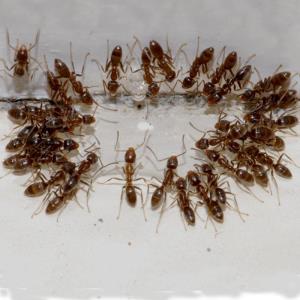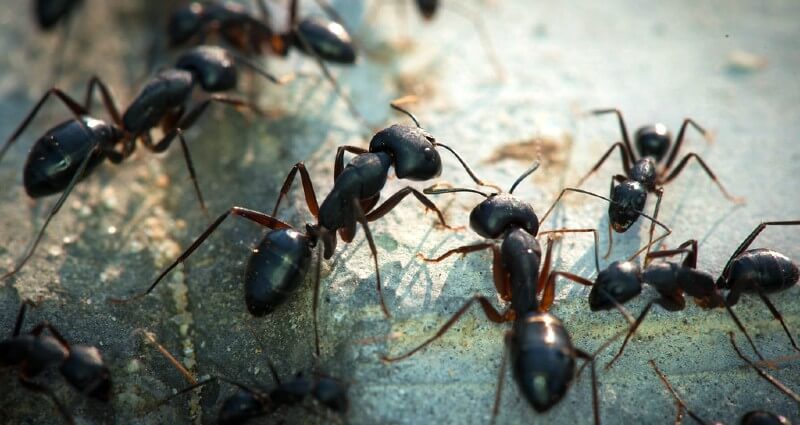Specialist Termite Control Services: Guard Your Home from Termite Damage
Specialist Termite Control Services: Guard Your Home from Termite Damage
Blog Article
Environmental Influence of Pest Control: Harmonizing Efficiency With Sustainability
The ecological impact of parasite control is an important concern that requires a delicate balance in between attaining performance in guaranteeing and handling pests sustainability of our ecological communities. From the usage of harmful chemicals that permeate right into our dirt and water to the unintended repercussions on non-target varieties, the effects of standard bug control techniques are far-ranging.
Dangerous Chemicals in Insect Control
The use of hazardous chemicals in insect control presents considerable ecological and health and wellness dangers that require careful consideration and reduction strategies. Chemicals, herbicides, and insecticides are frequently utilized to eliminate insects, yet their widespread application can bring about unintentional repercussions. These chemicals can contaminate soil, water resources, and the air, impacting not only the targeted pests yet additionally valuable pests, wildlife, and humans.

To deal with these threats, integrated parasite management (IPM) methods are being promoted as an extra sustainable alternative. IPM includes a mix of methods such as organic control, environment control, and the targeted use pesticides as a last hope (ant control stephens nc). By adopting an alternative approach to pest control, we can reduce the ecological and health impacts connected with damaging chemicals while efficiently managing pest populaces
Influence on Non-Target Species
Considering the unplanned repercussions of pest control approaches, the influence on non-target varieties is an essential element that requires detailed examination. While pest control procedures aim to target details insects, various other organisms in the ecological community may be inadvertently influenced. Non-target types, consisting of helpful pests, birds, mammals, and also plants, can endure indirect or straight harm from pesticide applications or organic control methods.
Insecticides designed to battle a particular insect pest might harm pollinators like bees or all-natural killers such as ladybugs. Organic control representatives, if not species-specific, can present risks to unintentional targets, disrupting the environmental equilibrium.
To alleviate the influence on non-target types, incorporated bug administration (IPM) techniques that emphasize an all natural technique to pest control are advised. These approaches focus on using eco-friendly techniques, decreasing injury to advantageous organisms while efficiently managing pest populaces. Performing thorough threat analyses and keeping track of the results of parasite control initiatives are vital actions in securing non-target types and promoting general community health and wellness.
Dirt and Water Contamination
Unintentional environmental effects of insect control methods prolong beyond impacting non-target species, with substantial implications for dirt and water contamination - ant control. Pesticides, herbicides, and chemical plant foods made use of in pest control can leach right into the dirt and infect groundwater, presenting a threat to both earthbound and aquatic ecological communities.
Water contamination is one more critical issue related to bug control techniques. Drainage from farming fields treated with pesticides can carry these chemicals into close-by water bodies, impacting water microorganisms and water top quality. Impurities in water resources can have far-ranging consequences, impacting not only aquatic life however additionally human wellness via the intake of infected water or water microorganisms. To minimize dirt and water contamination from parasite control tasks, incorporated parasite monitoring strategies that prioritize sustainability and reduce chemical inputs are critical.
Air Pollution From Pesticide Usage
Exposure to airborne pesticides throughout agricultural applications postures a substantial issue for air pollution control actions. They can volatilize right into the air and form unpredictable organic compounds (VOCs) and other air-borne pollutants when pesticides are sprayed onto plants - termite control. These chemicals can add to the development of ground-level ozone, a major component of smog that can have destructive results on human wellness, plant performance, and overall air quality. Furthermore, chemical drift, where pesticides are lugged by the wind to unexpected areas, can cause the contamination of close-by ecosystems and water bodies.

Approaches for Sustainable Insect Control
In the world of agricultural methods, carrying out lasting pest control strategies is critical for keeping eco-friendly balance and securing plant yields. Sustainable bug control stresses making use of eco-friendly methods to manage bug populations successfully while lessening injury to non-target microorganisms and communities. Integrated Bug Monitoring (IPM) is a widely adopted method that integrates organic, social, physical, and chemical control techniques to attain lasting pest management services.
Plant rotation and diversity are likewise effective methods to interrupt pest life cycles and create much less favorable problems for insects to grow. Eventually, by integrating these lasting insect control techniques, farmers can achieve a balance between pest administration effectiveness and ecological stewardship.
Final Thought
To conclude, the ecological impact of insect control approaches have to be very carefully considered to stabilize effectiveness with sustainability. Dangerous chemicals used in insect control can bring about soil and water contamination, air pollution, and damage non-target varieties - ant control services. It is critical to implement sustainable bug control strategies to lessen these adverse effects on the atmosphere and advertise a much healthier ecological community for future generations
By click this link adopting an alternative technique to pest control, we can decrease the ecological and health impacts connected with unsafe chemicals while effectively managing pest populations.

To reduce the air pollution triggered by chemical use, it is essential to take on integrated bug administration methods that focus on the use of non-chemical bug control methods, such as crop turning, all-natural predators, and immune plant varieties. Lasting parasite control emphasizes the usage of environmentally friendly approaches to manage insect populations efficiently while decreasing harm to non-target organisms and ecological communities. Integrated Insect Administration (IPM) is an extensively adopted method that integrates organic, cultural, physical, and chemical control methods to accomplish lasting pest administration options.
Report this page